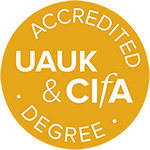
Igbo-Ukwu is a famous archaeological site in southeastern Nigeria. Excavated by Professor Thurstan Shaw in the 1960s, the site was settled over a thousand years ago. The materials from the site were unlike anything yet found in West Africa at the time. This discovery brought to our consciousness that Igbo-Ukwu represented a prosperous society that had established a complex social structure by the 9th century CE and had significantly interacted with the wider world through interregional and intercontinental exchange and trade.
Despite the extraordinary insights that Shaw’s work at Igbo-Ukwu shed on an ancient ‘civilization’ in Igboland and its significance in African and global archaeology, we still do not know the nature of the environment that supported settlement growth, nor how humans interacted with that environment. These knowledge gaps inspired this project. Our revisit to the site adopted a community approach.
The project applies archaeological science and historic data to address these grey areas and generate new data. The project examines the intersection of human-environmental interactions in the Igbo-Ukwu cultural landscape by:
i) reconstructing the environmental context of settlement development;
ii) reconstructing the spatial and temporal sequences of settlement and industrial activities in the landscape;
iii) undertaking diverse material science analyses of recovered ceramics, plant remains, and soil and sediment samples in collaboration with scholars at the McDonald Institute, University of Cambridge.
Marcus Brittain
Federica Sulas
Pamela Jane Smith Shaw
Paul Lane
Marie Skłodowska-Curie Individual Researcher (MCIF) scheme


